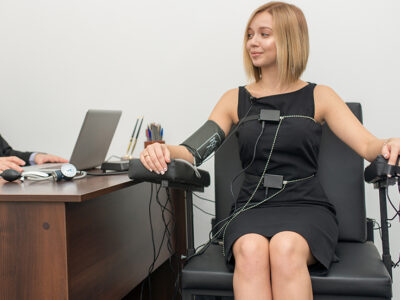Amyotrophic lateral sclerosis or ALS is a neurodegenerative condition that has no known cure. Current interventions focus on slowing the progression of the condition and helping sufferers manage symptoms. None of these interventions have been shown to send ALS into remission.
In addition to medications, people living with ALS typically need to attend physical therapy to learn how to cope with the decline in physical abilities. They may also need breathing support, as the condition will ultimately affect the muscles used for respiration.
How Long Does ALS Take to Progress?
Every case of ALS is different. Each individual will have a unique experience in terms of progression and the symptoms that manifest. They may also have different levels of benefits from current interventions. As a result, the lifespan of a patient following diagnosis will vary greatly.
Typically, patients survive ALS for two to five years following their diagnosis. However, some individuals have lived for ten years or more after being diagnosed with ALS.
Symptoms of ALS Progression
As ALS progresses, patients may experience many different symptoms that affect their cognitive and physical abilities. A few of the most common symptoms of ALS as it progresses include:
- Dry mouth or excess saliva
- Insomnia/sleep disorders caused by muscular discomfort
- Weight loss
- Reduced appetite
- Fatigue
- Difficulty speaking or pronouncing words
- Coughing while drinking or eating
- Difficulty breathing
These are just a few examples of the signs of ALS. The exact manifestation of symptoms will depend on the patient and how well they respond to treatment protocols. That being the case, it is vital for patients living with ALS to seek medical intervention early and to adhere to their recommended treatment plan. By doing so, they can mitigate symptoms and preserve a higher quality of life as the condition progresses.
Do Stem Cells Slow the Progression of ALS?
While more research is needed, some studies suggest that stem cell therapy can potentially slow down the progression of ALS. Stem cells are specialized cells that can repair damaged tissue and attack inflammation. The hope is that the stem cells will stimulate healing so that the patient’s body can repair damaged motor neurons and other tissues affected by ALS. By undoing the damage caused by the condition, stem cell therapy might slow the progression of ALS and can potentially alleviate certain symptoms.
This post was written by a medical professional at Stemedix Inc. At Stemedix we provide access to Regenerative Medicine for ALS, also known as ALS Stem cell treatment. Regenerative medicine has the natural potential to help improve symptoms sometimes lost from the progression of many conditions.










Comments